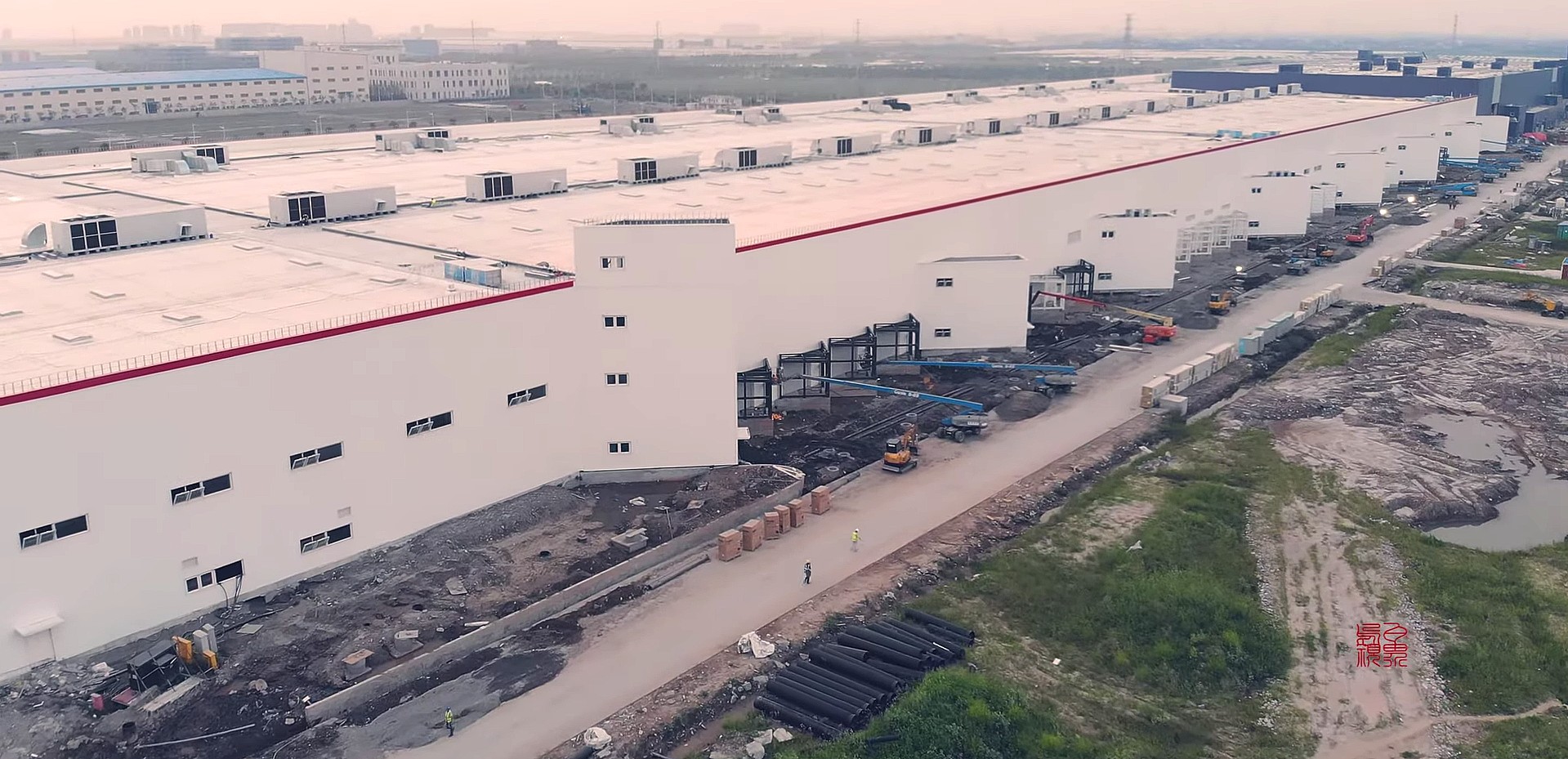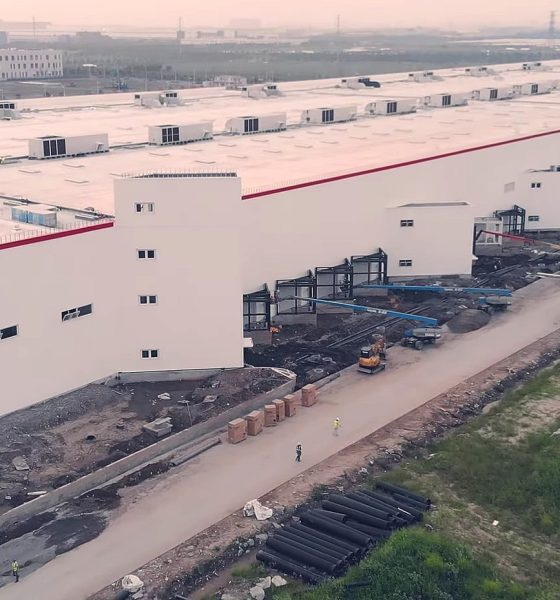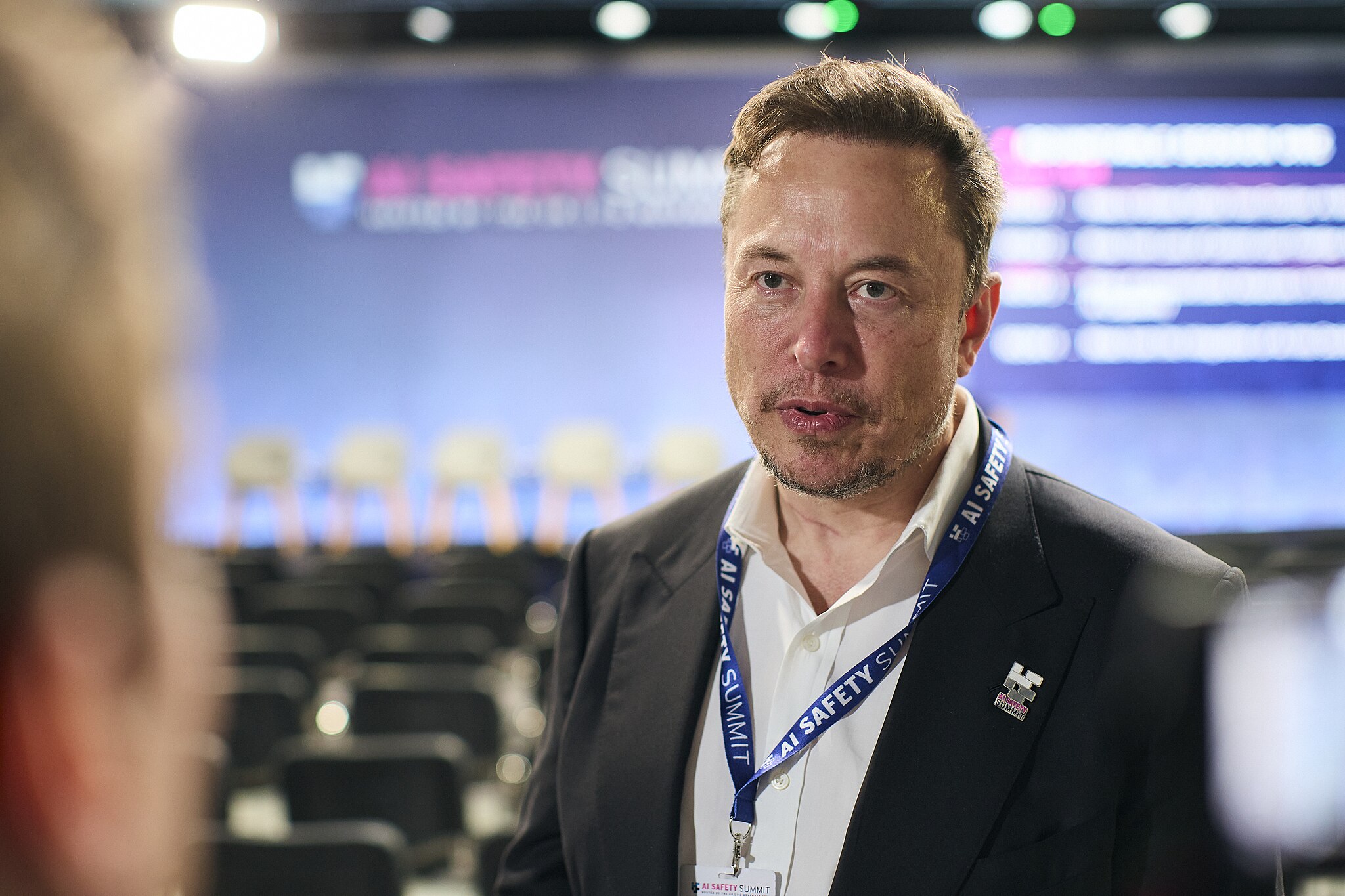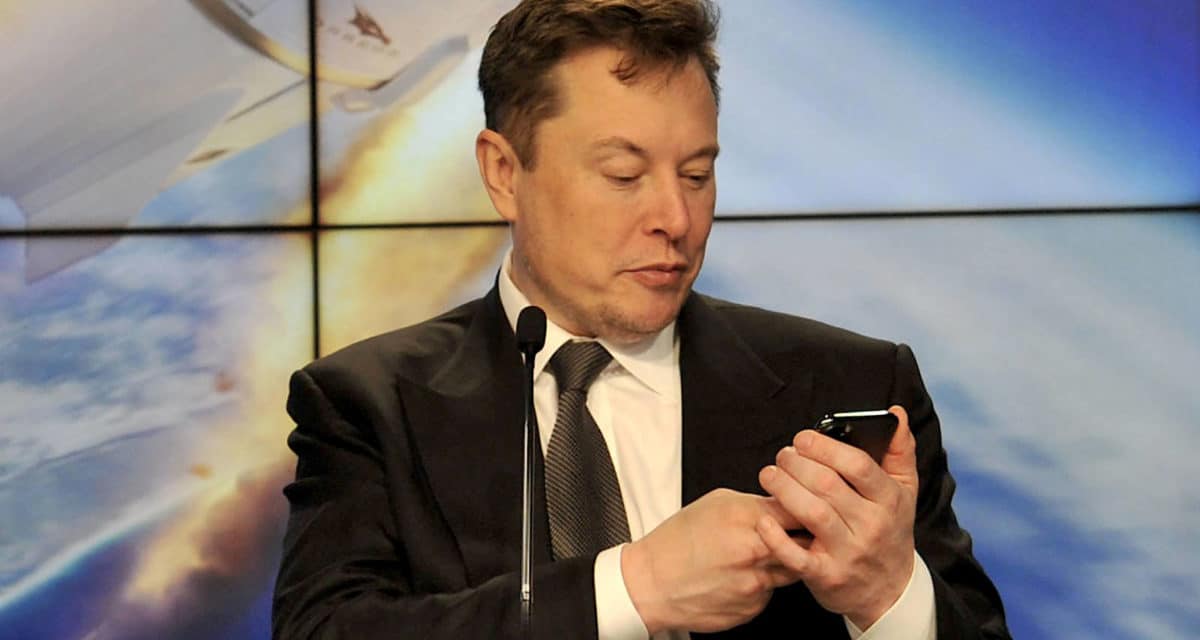

News
Tesla is tapping LG Chem as battery supplier for Gigafactory 3, claims report
Tesla is reportedly tapping South Korean battery maker LG Chem as one of its suppliers for Gigafactory 3, which will produce affordable versions of the Model 3 sedan and the Model Y crossover for the local Chinese market. The update was recently related to Bloomberg by individuals familiar with the proceedings.
According to the news agency’s sources, the 2170 cells that Tesla will be acquiring from LG Chem will initially be used for the Model 3, which is expected to enter production within the next few months. LG Chem will reportedly remain a key supplier for Tesla’s Chinese operations, even as the electric car maker starts the production of its Model Y crossover in the Shanghai-based site.
LG Chem’s 2170 battery cells will reportedly be produced at the company’s Nanjing factory, which is located about 200 miles west of Shanghai. This relatively short distance benefits both LG Chem and Tesla, as cells produced from the Nanjing plant could be transported to Gigafactory 3 in a relatively short period of time.
It should be noted that LG Chem will not be the sole battery supplier for Gigafactory 3. According to Bloomberg‘s sources, Tesla is also in talks with Chinese battery maker Contemporary Amperex Technology Co. Ltd (CATL) about a potential supply deal.
So far, LG Chem has declined to issue a comment about the recent reports. Representatives from Tesla China and CATL have declined to provide a statement about Bloomberg‘s recent report as well.
The rapid progress of Gigafactory 3’s buildout has exceeded expectations, even those of Tesla CEO Elon Musk, who already has a reputation for being very optimistic with his estimates. Musk noted during the facility’s groundbreaking ceremony last January that Gigafactory 3 will start trial production runs of the Model 3 at the end of December. Recent reports from China have suggested that Musk’s timetable could actually be conservative.
In an interview, Tesla Global Vice President Grace Tao stated that Gigafactory 3 is already mostly complete. Tao noted that the installation of production equipment within the factory is progressing well, and machines are already being debugged in preparation for trial Model 3 production runs. Local reports have also noted that Gigafactory 3’s substation is expected to start powering the complex sometime next month. Barring any unexpected delays, this could result in Gigafactory 3 coming to life as early as the end of September.
Watch a recent flyover of the Gigafactory 3 site in the video below.

News
Samsung nears Tesla AI chip ramp with early approval at TX factory
This marks a key step towards the tech giant’s production of Tesla’s next-generation AI5 chips in the United States.

Samsung has received temporary approval to begin limited operations at its semiconductor plant in Taylor, Texas.
This marks a key step towards the tech giant’s production of Tesla’s next-generation AI5 chips in the United States.
Samsung clears early operations hurdle
As noted in a report from Korea JoongAng Daily, Samsung Electronics has secured temporary certificates of occupancy (TCOs) for a portion of its semiconductor facility in Taylor. This should allow the facility to start operations ahead of full completion later this year.
City officials confirmed that approximately 88,000 square feet of Samsung’s Fab 1 building has received temporary approval, with additional areas expected to follow. The overall timeline for permitting the remaining sections has not yet been finalized.
Samsung’s Taylor facility is expected to manufacture Tesla’s AI5 chips once mass production begins in the second half of the year. The facility is also expected to produce Tesla’s upcoming AI6 chips.
Tesla CEO Elon Musk recently stated that the design for AI5 is nearly complete, and the development of AI6 is already underway. Musk has previously outlined an aggressive roadmap targeting nine-month design cycles for successive generations of its AI chips.
Samsung’s U.S. expansion
Construction at the Taylor site remains on schedule. Reports indicate Samsung plans to begin testing extreme ultraviolet (EUV) lithography equipment next month, a critical step for producing advanced 2-nanometer semiconductors.
Samsung is expected to complete 6 million square feet of floor space at the site by the end of this year, with an additional 1 million square feet planned by 2028. The full campus spans more than 1,200 acres.
Beyond Tesla, Samsung Foundry is also pursuing additional U.S. customers as demand for AI and high-performance computing chips accelerates. Company executives have stated that Samsung is looking to achieve more than 130% growth in 2-nanometer chip orders this year.
One of Samsung’s biggest rivals, TSMC, is also looking to expand its footprint in the United States, with reports suggesting that the company is considering expanding its Arizona facility to as many as 11 total plants. TSMC is also expected to produce Tesla’s AI5 chips.
News
Anti-Tesla union leader ditches X, urges use of Threads instead
Tesla Sweden and IF Metall have been engaged in a bitter dispute for over two years now.

Marie Nilsson, chair of Sweden’s IF Metall union and a prominent critic of Tesla, has left X and is urging audiences to follow the union on Meta’s Threads instead.
Tesla Sweden and IF Metall have been engaged in a bitter dispute for over two years now.
Anti-Tesla union leader exits X
In a comment to Dagens Arbete (DA), Nilsson noted that her exit from X is not formally tied to IF Metall’s long-running labor dispute with Tesla Sweden. Still, she stated that her departure is affected by changes to the platform under Elon Musk’s leadership.
“We have stayed because many journalists pick up news there. But as more and more people have left X, we have felt that the standard has now been reached on that platform,” she said.
Jesper Pettersson, press officer at IF Metall, highlighted that the union’s departure from X is only indirectly linked to Tesla Sweden and Elon Musk. “Indirectly it does, since there is a lot of evidence that his ownership has caused the change in the platform to be so significant.
“We have nevertheless assessed that the platform had value for reaching journalists, politicians and other opinion leaders. But it is a microscopic proportion of the public and our members who are there, and now that value has decreased,” Petterson added.
IF Metall sees Threads as an X alternative
After leaving X, IF Metall has begun using Threads, Meta’s alternative to the social media platform. The union described the move as experimental, noting that it is still evaluating how effective the platform will be for outreach and visibility.
Pettersson acknowledged that Meta also does not operate under Sweden’s collective bargaining model, but said the union sees little alternative if it wants to remain visible online.
“In a perfect world, all large international companies would be supporters of the Swedish model when they come here. But unfortunately, the reality is not like that. If we are to be visible at all in this social media world, we have to play by the rules of the game. The alternative would be to become completely invisible, and that would not benefit our members,” he said.
Elon Musk
Elon Musk confirms SpaceX is not developing a phone

Despite many recent rumors and various reports, Elon Musk confirmed today that SpaceX is not developing a phone based on Starlink, not once, but twice.
Today’s report from Reuters cited people familiar with the matter and stated internal discussions have seen SpaceX executives mulling the idea of building a mobile device that would connect directly to the Starlink satellite constellation.
Musk did state in late January that SpaceX developing a phone was “not out of the question at some point.” However, He also said it would have to be a major difference from current phones, and would be optimized “purely for running max performance/watt neural nets.”
Not out of the question at some point. It would be a very different device than current phones. Optimized purely for running max performance/watt neural nets.
— Elon Musk (@elonmusk) January 30, 2026
While Musk said it was not out of the question “at some point,” that does not mean it is currently a project SpaceX is working on. The CEO reaffirmed this point twice on X this afternoon.
Musk said, “Reuters lies relentlessly,” in one post. In the next, he explicitly stated, “We are not developing a phone.”
Reuters lies relentlessly
— Elon Musk (@elonmusk) February 5, 2026
We are not developing a phone
— Elon Musk (@elonmusk) February 5, 2026
Musk has basically always maintained that SpaceX has too many things going on, denying that a phone would be in the realm of upcoming projects. There are too many things in the works for Musk’s space exploration company, most notably the recent merger with xAI.
SpaceX officially acquires xAI, merging rockets with AI expertise
A Starlink phone would be an excellent idea, especially considering that SpaceX operates 9,500 satellites, serving over 9 million users worldwide. 650 of those satellites are dedicated to the company’s direct-to-device initiative, which provides cellular coverage on a global scale.
Nevertheless, there is the potential that the Starlink phone eventually become a project SpaceX works on. However, it is not currently in the scope of what the company needs to develop, so things are more focused on that as of right now.








